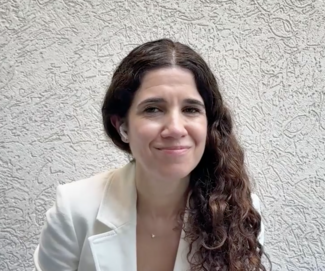Vorasidenib Demonstrates Promise for Patients With Residual or Recurrent Grade 2 IDH-Mutant Glioma
According to results from the phase 3 INDIGO trial, vorasidenib, a dual IDH1 and IDH2 inhibitor, demonstrated clinical promise among patients with residual or recurrent grade 2 IDH-mutant glioma.
The standard of care for this patient population, chemoradiotherapy, “is associated with radiation-induced neurocognitive dysfunction, chemotherapy-associated DNA hypermutation, and other toxic effects,” stated Ingo Mellinghoff, MD, Memorial Sloan Kettering Cancer Center, New York, New York, and coauthors. As many patients in this population may not immediately begin adjuvant chemoradiotherapy following diagnosis to delay toxicities, as study authors noted, this period of surveillance serves as “an opportunity for the evaluation of new therapies.”
In this double-blind, placebo-controlled trial, 331 previously untreated patients with residual or recurrent grade 2 IDH-mutant glioma were randomized on a 1-to-1 basis to receive either 40 mg of once daily vorasidenib (n = 168) or placebo (n = 163) in 28-day cycles. Crossover to vorasidenib was permitted upon confirmation of imaging-based disease progression. The primary end point was imaging-based progression-free survival (PFS). Key secondary end points included time to next anticancer intervention and safety.
At a median follow-up of 14.2 months, the median PFS was 27.7 months in the vorasidenib arm and 11.1 months in the placebo arm (hazard ratio [HR] 0.39; 95% confidence interval [CI], 0.27 to 0.56; P < .001). The time to next anticancer intervention was significantly improved in the vorasidenib arm compared to the placebo arm (HR 0.26; 95% CI, 0.15 to 0.43; P < .001). Overall, 77 patients received another anticancer intervention upon discontinuation of either vorasidenib or placebo. This includes 19 patients in the vorasidenib arm who went on to receive surgery, chemotherapy, or radiation therapy, and 58 patients in the placebo arm who went on to receive vorasidenib, surgery, chemotherapy, or radiation therapy.
Grade ≥3 adverse events occurred in 22.8% of patients in the vorasidenib arm and 13.5% of patients in the placebo arm. Grade ≥3 increased alanine aminotransferases occurred in 9.6% of patients in the vorasidenib arm and 0% of patients in the placebo arm.
“In patients with grade 2 IDH-mutant glioma, vorasidenib significantly improved progression-free survival and delayed the time to the next intervention,” concluded Dr Mellinghoff et al. “The findings of this trial could be generalized to the real-world setting regarding how these patients are treated.”
Source:
Mellinghoff IK, Van Den Bent MJ, Blumenthal DT, et al. Vorasidenib in IDH1- or IDH2-mutant low-grade glioma. N Engl J Med. Published online: June 4, 2023. doi: 10.1056/NEJMoa2304194













